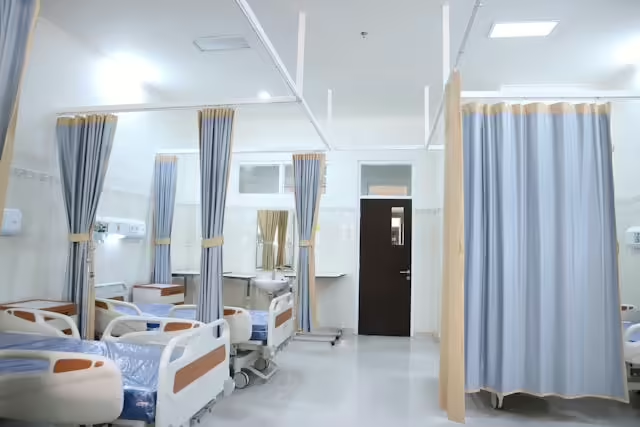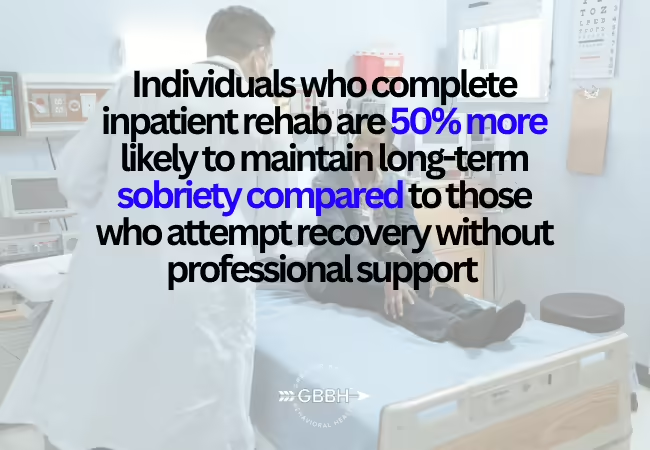Taking the step to enter inpatient rehab is a pivotal moment in the journey to recovery. The first 24 hours in a rehab facility are crucial for setting the tone of your treatment and beginning the process of healing. Understanding what to expect can alleviate anxieties, foster a sense of preparedness, and ensure a smoother transition into a structured environment.
For individuals in Boston, accessing professional support through Mental Health Treatment Programs, CBT Therapy, and DBT Therapy at a trusted Mental Health Treatment Center in Boston offers the opportunity to address addiction and co-occurring mental health challenges comprehensively.
Arrival and Admission: The First Steps
The journey into rehab begins with an intake and admission process. This step ensures that the facility understands your unique needs and tailors your treatment plan accordingly.
1. Intake and Assessment
- Medical Evaluation: A medical professional will assess your physical health, including any existing conditions or withdrawal symptoms. This ensures that your detox process, if needed, is safe and monitored.
- Mental Health Screening: A licensed therapist or counselor evaluates your mental health to identify co-occurring disorders such as depression, anxiety, or PTSD.
- Substance Use History: Understanding the types, duration, and patterns of substance use helps staff design a personalized treatment plan.
2. Goal Setting
- During the intake, you will discuss your expectations and objectives for treatment.
- Therapists work with you to define short-term and long-term goals, such as emotional stabilization, skill-building, or achieving sobriety milestones.
Orientation to the Facility
Familiarizing yourself with the rehab facility during the first 24 hours helps ease anxiety and creates a sense of comfort.
1. Facility Tour
- Staff members provide a guided tour of the facility, including sleeping quarters, therapy rooms, dining areas, and recreational spaces.
- Learning about the amenities available, such as fitness centers or outdoor areas, highlights the resources at your disposal.
2. Meeting the Team
- You’ll be introduced to the multidisciplinary team, including doctors, therapists, nurses, and support staff.
- Building rapport with your care team early on fosters trust and open communication throughout your stay.
3. Connecting with Peers
- Rehab often involves group therapy and shared living spaces. Initial introductions with peers create a sense of community and reduce feelings of isolation.
- Many facilities encourage group discussions or informal social time to help new arrivals feel welcomed.
Detoxification and Medical Stabilization
If detox is necessary, it typically begins during the first 24 hours. This process is carefully monitored to ensure safety and comfort.
1. Medical Supervision
- A medical team supervises the detox process, addressing withdrawal symptoms with medications or interventions as needed.
- For individuals with co-occurring mental health disorders, medications may also be introduced to stabilize mood or anxiety.
2. Emotional Support During Detox
- Withdrawal can be emotionally challenging. Therapists provide coping tools to help you manage discomfort, such as mindfulness exercises or guided breathing techniques.
- Emotional reassurance is provided to remind you that detox is the first step toward healing.
Introduction to Therapies and Programs
Therapy begins early in the rehab process to establish a foundation for recovery. Even within the first day, you’ll be introduced to various therapeutic approaches.
1. Individual Therapy
- In your initial session, a therapist may explore your emotional state, motivations for seeking treatment, and immediate concerns.
- CBT Therapy is often introduced to help you identify and challenge negative thought patterns that contribute to addiction.
2. Group Therapy
- Many facilities host an introductory group therapy session on the first day, allowing new participants to observe or share their experiences.
- Group therapy fosters peer support and highlights shared struggles, reducing feelings of loneliness.
3. Holistic Therapies
- Depending on the facility, you may be introduced to holistic practices like yoga, meditation, or art therapy.
- These activities complement traditional therapies by reducing stress and promoting self-awareness.
Daily Routine and Structure
Routine is a cornerstone of inpatient rehab, providing structure and predictability that aid recovery.
1. Morning Routine
- The day often starts with breakfast, followed by a check-in session with staff or peers.
- Morning activities like mindfulness exercises or light physical activity set a positive tone for the day.
2. Midday Schedule
- Therapy sessions, including DBT Therapy or CBT Therapy, take place during the day.
- Educational workshops on topics like relapse prevention, coping skills, or the science of addiction may also be included.
3. Evening Wind-Down
- After dinner, evenings are often dedicated to reflective activities, such as journaling or gratitude exercises.
- Recreational time or quiet social interactions with peers help prepare participants for restful sleep.
Coping with Emotions During the First 24 Hours
It’s common to experience a mix of emotions during your first day in rehab. Addressing these feelings early helps create a positive mindset for recovery.
1. Fear and Uncertainty
- Many individuals feel apprehensive about entering a new environment. Therapists provide reassurance and encourage open discussions about your concerns.
2. Hope and Motivation
- Beginning rehab is a hopeful step. Staff members focus on your courage and commitment, reminding you of the potential for growth and healing.
3. Stress Management
- Tools like mindfulness, progressive muscle relaxation, or grounding techniques are introduced to help you manage initial stress.
The Role of Professional Support
Inpatient rehab is designed to provide comprehensive care that addresses both addiction and co-occurring mental health conditions.
1. Personalized Care
- Treatment plans are tailored to your needs, incorporating therapies like CBT Therapy for cognitive restructuring and DBT Therapy for emotional regulation.
2. 24/7 Access to Support
- The first 24 hours are supported by a dedicated team that monitors your physical and emotional health.
- Immediate access to professionals ensures that any challenges are addressed promptly.
3. Holistic Healing
- Many programs combine evidence-based therapies with holistic approaches, such as fitness, art, and mindfulness, to promote overall well-being.
Setting the Stage for Long-Term Recovery
The first day in inpatient rehab is about more than just settling in—it’s about building a strong foundation for lasting change.
1. Establishing Goals
- Early discussions about your goals help shape your treatment plan and keep you motivated.
- Goals may include overcoming triggers, developing coping strategies, or rebuilding relationships.
2. Building Trust
- Connecting with staff and peers establishes a support system that fosters accountability and encouragement.
3. Creating Hope
- The initial experiences in rehab are designed to show you that recovery is possible and that you’re not alone in the journey.
Why Choose Inpatient Rehab in Boston?
For individuals seeking recovery in Boston, Mental Health Treatment Programs at a Mental Health Treatment Center provide a comprehensive approach to healing. These programs address addiction alongside co-occurring mental health challenges through a blend of evidence-based therapies and holistic care.
Final Thoughts
The first 24 hours in inpatient rehab may feel overwhelming, but they are a critical part of the recovery process. By understanding what to expect and leaning into the structured environment, you can take the first steps toward a healthier, more fulfilling life.
If you’re ready to begin your recovery journey, Greater Boston Behavioral Health can help. Contact us today at (888)278-0716 to learn more about our inpatient rehab programs and take the first step toward lasting change.
FAQs on Mental Health Rehab
What happens during the first 24 hours of inpatient rehab?
The first 24 hours include an intake assessment, medical evaluation, orientation to the facility, and initial therapy sessions to help you acclimate and begin your recovery journey.
Will I have a personalized treatment plan?
Yes, your treatment plan will be tailored to your unique needs, based on your intake assessment, substance use history, and mental health evaluation.
What kind of therapies are introduced on the first day?
Therapies like CBT Therapy and DBT Therapy may be introduced to address thought patterns and emotional regulation, along with group therapy or mindfulness practices.
Is detox part of the first 24 hours?
If detox is required, it typically begins on the first day under medical supervision to ensure safety and comfort.
How is emotional support provided during the first day?
Therapists and staff offer coping tools, emotional reassurance, and mindfulness exercises to help manage anxiety, fear, or stress during the adjustment period.
What does the daily schedule look like?
Your day will include structured activities like therapy sessions, educational workshops, meals, recreational time, and evening wind-down activities.
Will I meet other participants on the first day?
Yes, you’ll be introduced to peers during group therapy or informal social time, fostering a sense of community and reducing feelings of isolation.


